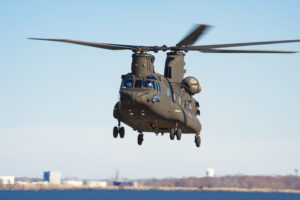
The final version of the fiscal year 2020 defense spending bill, passed by the House on Tuesday, reduces funding for the Army’s Optionally Manned Fighting Vehicle (OMFV) development program and boosts production dollars for the newest variant of the CH-47 Chinook helicopter. Congressional appropriators specifically cut $172.8 million in funds from the OMFV program, which is meant to replace the Bradley fighting vehicle, with calls for greater insight into the program’s lack of competition, and restores an additional $28 million…

 By
By 











